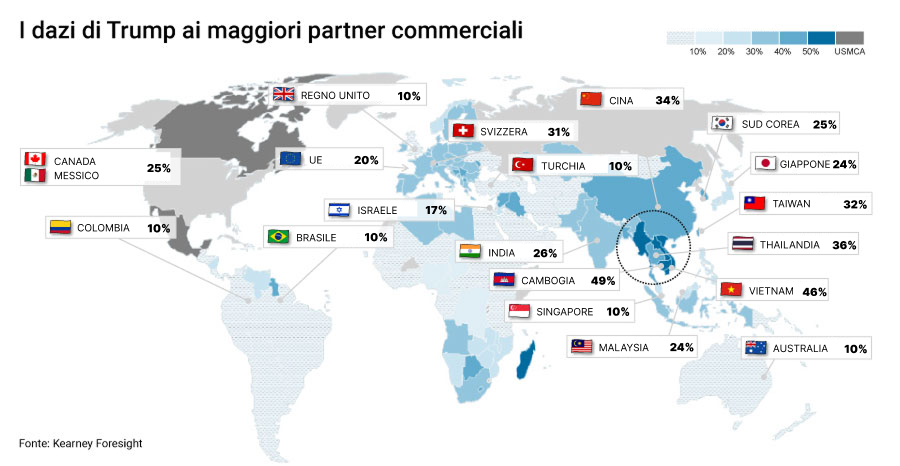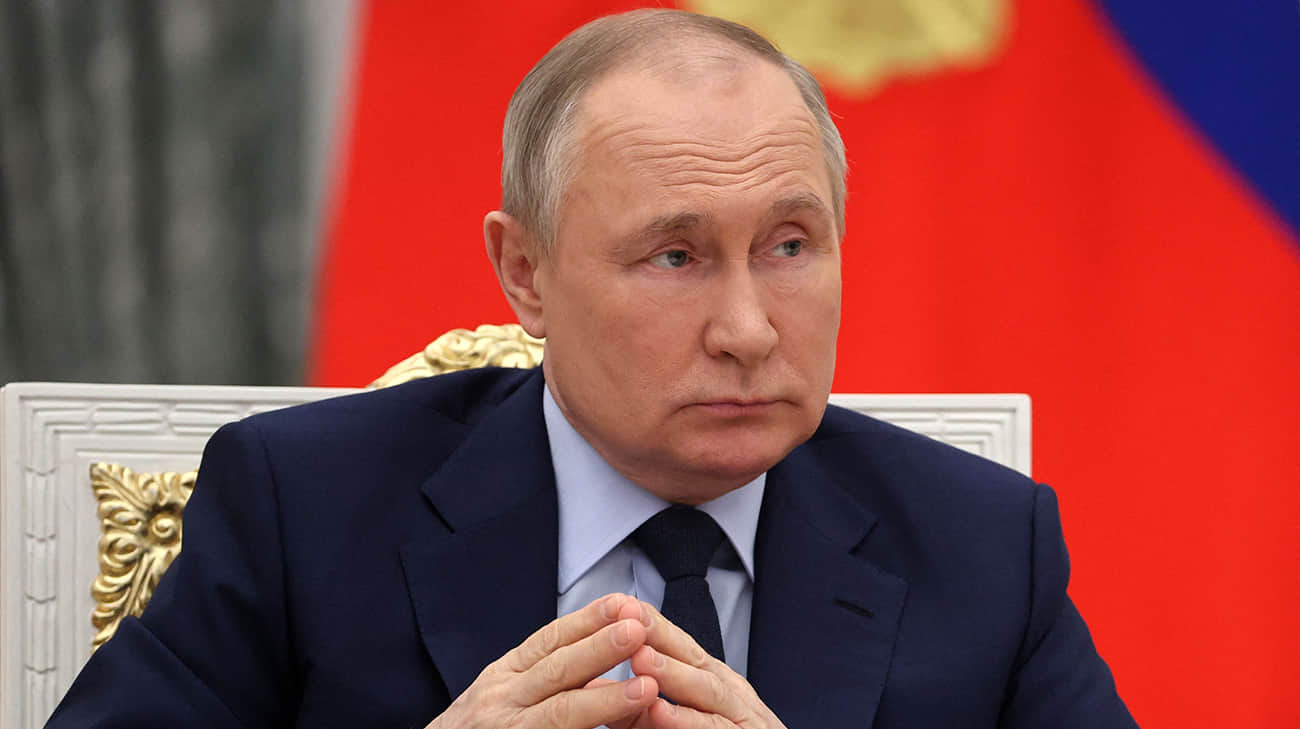The hard line of China, the EU counter-dazi, Israel already in the White House: how the countries respond to Trump

Counter-tooth, commercial agreements, funds for the most affected companies. Here’s how the main countries of the world reacted to the commercial war launched by the White House
Some countries have decided to play the card of mutual dutiesothers have Created funds To protect the companies most affected by rail of American President Donald Trump, while Great Britain, India and Japan have chosen the line awaiting. Here’s how the main countries of the world reacted to the commercial war launched by the White House.
China, hard line
Among the strongest reactions stands out that of China who stressed that he wanted « Fight to the end. » The Ministry of Commerce of Beijing has promised countermeasures against the new duties, which he defined « Unilateral bullying ». The Trump administration on April 2 struck Beijing with 34% duties, a decision that prompted the Chinese government to introduce in turn a 34% duty on US goods as well as providing restrictions for various US companies involved in the sale of weapons in Taiwan. Trump has therefore threatened that if China does not cancel the retracting duties against the USA, Washington will impose further 50% duties on Chinese goods. The President of the Chinese Commission for Development and Reformation (Ndrc), Zheng Shanjie, held a meeting in Beijing yesterday with representatives of private companies to listen to suggestions and prepare a strategy in response to the new threats of Trump.
The against EU duties
The European Union has chosen the Via dei counter-tooth without excluding the negotiation. The president of the European Commission, Ursula von der Leyen, said that the blockage will be united in his response against the duties of 25% on the EU goods. As he writes Francesca Basso on Corriere della Sera Usual products will end up in the sights of Brussels for a value of 22 billion Euro compared to the 26 announced in mid-March, to whom counter-dazio will be applied by 25% and 10%.
Spain and help to businesses
The case of Spain is then distinguished. The Spanish government will approve a decree law of urgent measures to support affected companies from duties as he points out El Pais. The measure includes an accounting moratorium approved at the time for the Covid-19 crisis and already expanded in the following ones, including that caused by the Dana catastrophe in Valencia, to prevent companies from having to close due to the losses deriving from the duties. The program, which provides for a total investment of over 14 billion eurosof which 7.4 billion of new funding and 6.7 billion provided for by previous financial and commercial instruments, aims to encourage productive investments, liquidity and diversification of the export activity of affected companies. To this end, a line of guarantees of 5 billion – already anticipated by Prime Minister Pedro Sanchez – for the coverage of funding to export and import companies that have significant exposure to the US market.
The United Kingdom focuses on a commercial agreement
The goal of the United Kingdom is instead get to a commercial agreement with the United States. Prime Minister Keir Starmer did not refer to possible retaliation against US duties and said that negotiations for a commercial agreement with the United States will continue. The Trump administration has imposed a rate of the 10%, lower than that of 20% imposed on the European Union.
India at least
India opts instead for prudence. As reported by the New York Times, The Ministry of Commerce has declared to be « carefully examining the implications of the various measures » announced by the United States, after Trump has imposed 27% rates in the country. Trump said he was repeatedly irritated by the large commercial deficit of the United States with India, despite his close relations with Prime Minister Narendra Modi.
Criticism from Tokyo
Also Japan he is avoiding imposing in the immediate duties to US products but Prime Minister Shigeru Ishiba defined rates « Extremely deplorable ». He said his government is trying to make the Trump administration understand that Japan is helping the United States to reindustrialize as its greater investor abroad.
Mexico
Mexico does not exclude the possibility of imposing mutual rates to the United States, its main commercial partner. This was stated by President Claudia Sheinbaum. « As far as possible, we want to avoid mutual rates, » said Sheinbaum in his daily press conference. «We do not exclude it, but we prefer to continue the dialogue in another way ». Which means signing a ad hoc commercial agreement.
Israel
Israel also falls within the list of countries subject to increased rates: in early April the United States introduced duties of 17%. Israeli Prime Minister Benjamin Netanyahu, however, met Donald Trump at the White House, becoming the first foreign leader to visit the President of the USA since he imposed duties on countries around the world. During the meeting in the oval study, The prime minister said that Israel will work to eliminate the deficit « very quickly » and to eliminate commercial barriers with the United States. « Israel can serve as a model for many countries that should do the same, » said Netanyahu underlining how the country is a free trade sample « and free trade must be a fair trade ».










